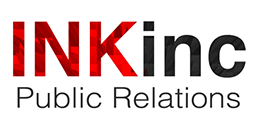The New York Times article recounted how Time, Inc. under its new C-suite management, is attempting to revitalize its brand, perhaps even to be an acquisition target, not with a nod to its journalistic past, but toward “a multimedia, multipurpose company, with a strategy heavy on online video, television and entertainment – and noticeably lighter on magazine journalism.” Henry Luce, the iconic founder of Time, Inc., and whose portrait still hangs in the board room where this interview took place, must have noticeably sighed and fidgeted uncomfortably at these words from two executives most recently from television entertainment and a website named PopSugar.
Obviously, the plight of traditional journalism – magazines, newspapers, and even broadcast – to survive, let alone thrive, in this new digital age is nothing new and been well documented. Iconic journalistic brands like The Washington Post and even The New York Times are going against the winds of change and fighting daily to hold their own – but barely. Why must this be? Is there still not a demand for the well-researched, well documented, indeed, well-written news story presented on the printed page? Ironically, the Times article author leans toward believing the owner of such great names as Time, Fortune, Money, Sports Illustrated, and yes, People, may be where the real value of the company lies; and not with its videos and digital products. “In the end, it may be in those venerable magazines that made it so prominent in the first place.”
We in the PR business witness daily this same irony. Embryonic start-up companies have a masterly knowledge of everything digital and online. But, when they go through their checklists of “PR wants,” invariably have near the top of such lists, the ability to land a story in the print versions of major publications. A story that reflects the credibility of professional journalism, real news with staying power. Content that yes, can be easily reproduced and transmitted online and through all the digital channels; but also a real piece of journalism that will lie on the lunch table and hang framed on the wall.
It’s a good lesson for the old-line traditional media companies as well as their often digitally hip management teams. Probably something old Henry Luce understood even if he had never heard of PopSugar.[/et_pb_text][/et_pb_column] [/et_pb_row] [/et_pb_section]
